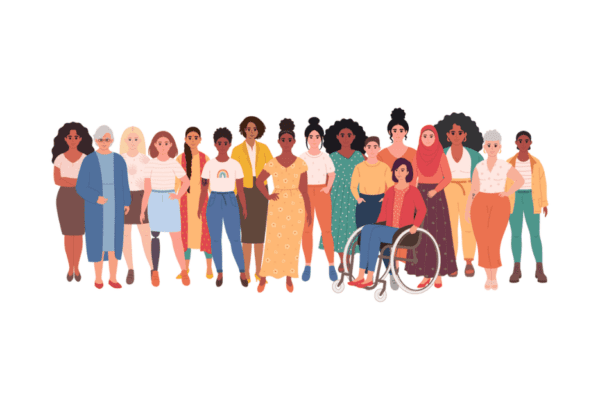Highlights | Accommodation is a right
- October is Disability Employment Awareness Month.
- Many people with disabilities work and some need accommodations.
- It’s important to recognize that all people and all disabilities are unique.
- Leave and accommodations specialists help connect employees and departments with resources.
- The Disability Services Office is available to assist all employees.
October is Disability Employment Awareness Month, a time to recognize the contributions people with disabilities have made, are making and will make to our workforce.
There are more than 61 million disabled people in the U.S., with disabilities ranging from physical to cognitive to mental. Despite how common it is, disability is often overlooked or erased, though it is an important part of equity, diversity and inclusion. When it is acknowledged, it is often in stereotypical ways. And it wasn’t until 1990, when the Americans with Disabilities Act (ADA) was passed, that it was illegal to discriminate against people with disabilities.
Contrary to assumptions, many people with disabilities have jobs, and they contribute quality work and valuable perspectives. However, working while disabled can present challenges due to the ableism in our society as well as the nature of the disability itself.
Some of us will, at some point, need to request accommodations at work, whether that is for a disability we were born with, a temporary injury or a new medical condition. To help demystify the accommodation process, we asked Kim Francis, lead leave and accommodations specialist in UW Medicine Human Resources, to share some facts you may not know about it.
Leave specialists are your first point of contact
When requesting accommodation or leave, the best person to work with is someone like Francis who will act as a go-between with your department and the Disability Services Office and Employee Health.
“We’re the front-line contact for departments and employees. Our role is best described as a project manager: we don’t directly provide resources but instead put people in touch with experts who can, while making sure we’re adhering to policies,” Francis explains.
Along with connecting employees to resources they need, Francis and her colleagues do things such as facilitating requests for equipment or other accommodations, helping with paperwork, reviewing requests for completeness, arranging leaves of absence, and working with the department and the employee to arrange for modifications to work duties.
No two accommodations (or disabilities) are the same
All the elements of someone’s life affect their disability, which means that even if two people have disabilities that seem similar on paper, those people may need very different accommodations, Francis says.
Some people come to a job with a disability, whereas others develop one after they’ve already begun working. Some people incur temporary injuries or illnesses that cause disability, while others may have multiple disabilities that interact.
“Disabilities are very individualized, and some disabilities such as mental health and cognitive ones have restrictions that are very subjective in terms of the employee. What I like about the job is you have to put your creative thinking cap on to find the best option for someone because no two requests are the same,” she says.
Consistency and equity are the goals
Sometimes, an employee and the department they work for may have different goals or ideas for what will work best. That’s where Francis and her team come in.
“We make sure policies are adhered to and there’s consistency in practice. It’s good for people to know that there is a group looking at the process and that, while each assessment is individualized, we are still looking for consistency across all requests,” Francis says.
Their work also ensures there is equity in the way requests are handled and that one person doesn’t get treated differently than someone else.
Disability Services has resources for all employees
“The biggest stumbling block is usually that people don’t know who to send their inquiry to or where to get resources, or they don’t know that they can request accommodation,” Francis says.
To that end, it’s important for all employees to know that the Disability Services Office can help with procuring equipment, arrange accommodation for service animals, reserve disability parking spaces, help with accessibility for deaf or hard of hearing employees and more — and that Francis and her team can be your first point of contact with this office for all your disability-related requests.


